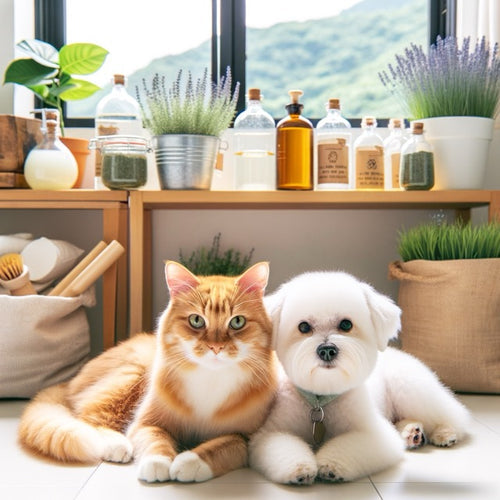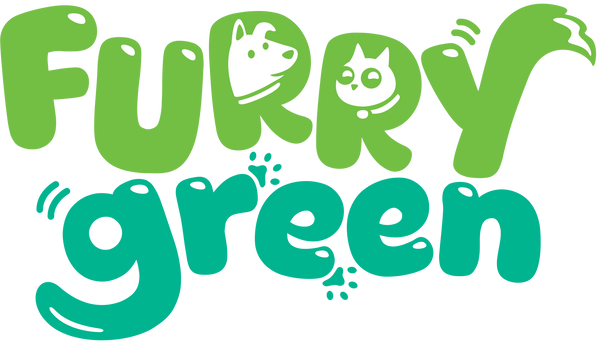
🐾 Pet-Friendly Ant Control in Hong Kong: Safe Pest Solutions for Homes with Pets
Share
Pet-Friendly Ant Control in Hong Kong: A Guide for Safe Homes
As pet owners in Hong Kong, we all know the joy our furry friends bring to our lives. But when uninvited guests like ants invade our homes, it can be a real challenge to find pest control solutions that are both effective and safe for our beloved pets. If you’re facing this dilemma, you’re in the right place! Let’s explore some pet-friendly ways to tackle those pesky ants and keep your home a safe haven for all its inhabitants--furry or not.
Key Takeaways
- DIY options like food-grade diatomaceous earth and carefully applied natural remedies can help manage ants safely around pets.
- Professional pest control services in Hong Kong often use targeted, pet-safe methods such as integrated pest management (IPM).
- Prevention is the best long-term strategy: store food securely, clean spills quickly, and block ants’ access points.

Understanding the Ant Problem in Hong Kong Homes
Hong Kong’s subtropical climate is perfect not just for us, but unfortunately for ants too. Common invaders like Pharaoh ants and black house ants can quickly escalate from a nuisance to a real problem, often finding their way into kitchens and even pet food bowls. Before you reach for heavy-duty insecticides, let’s look at safer alternatives that won’t put your pets at risk.
DIY Solutions: Nature’s Way of Pest Control
Diatomaceous Earth: Your Microscopic Ally
Food-grade diatomaceous earth (DE) is a natural, non-toxic powder made from fossilized algae. It works by damaging the exoskeletons of ants, ultimately killing them. Sprinkle a light layer around areas of ant activity, keeping it dry for best results.
⚠️ Important: Always use food-grade DE (not the crystalline type used in pool filters), and avoid creating dust clouds, which can irritate lungs in both pets and people.
Cornmeal: The Anecdotal Option
Some pet owners swear by cornmeal as an ant deterrent, since ants cannot digest it and may carry it back to their colonies. Results vary, but since it’s harmless to pets, it may be worth trying around ant trails as a low-risk experiment.
Natural Deterrents
- Sugar water traps can help lure and contain ants.
- Some essential oils, like peppermint or tea tree, may deter ants when used correctly.
⚠️ Safety note: Essential oils can be toxic to pets--especially cats--if ingested or applied to skin. Use sparingly, in diluted form, and never directly on your animals.
Insights from the Pros: What Pest Control Experts Want You to Know
Professional pest control in Hong Kong has come a long way. Many companies now use integrated pest management (IPM), which combines prevention, monitoring, and minimal use of chemicals. When pesticides are needed, modern non-repellent products are generally safer for pets than older sprays.
Here are some pro tips for effective, pet-safe ant control:
- Use non-repellent baits or pesticides that ants carry back to their colony.
- Place baits in active ant areas but out of reach of pets.
- Always follow label instructions on pest control products meticulously.
- Ask your pest control provider about their specific pet-safe treatment plans.
Home Solutions and Preventive Measures: Your First Line of Defense
Prevention is Better Than Cure
The most effective long-term strategy is to make your home less attractive to ants in the first place.
- Keep human and pet food in sealed containers.
- Clean up spills and crumbs promptly.
- Place pet food bowls on plastic trays or in shallow water “moats” to block ant access.
- Seal cracks and crevices where ants may enter your home.
Conclusion: A Pest-Free Home for You and Your Pets
Managing ants in a pet-friendly way isn’t just possible--it’s the best way to protect both your home and your furry companions. Whether you prefer DIY methods, professional help, or a combination of both, safe and effective solutions are available in Hong Kong.
The key is persistence and prevention. With a few smart strategies and, when needed, support from your community or pest control professionals, you can enjoy an ant-free environment that keeps your pets safe and comfortable.
We’d love to hear from you: Have you tried pet-friendly pest control methods? What worked best for your household? Share your experiences in the comments below and help build a community of knowledge for pet-loving Hongkongers!
Join Our Pack!
Get pet care tips, news, and special offers delivered to your inbox.
Frequently Asked Questions
1. Are essential oils safe for pets when used for ant control?
Not always. Some essential oils, like tea tree and peppermint, can be toxic if ingested or applied to your pet’s skin. If you use them for ant control, make sure they are highly diluted, applied only to inaccessible areas, and never directly on your pet. Cats are especially sensitive.
2. Is diatomaceous earth safe for dogs and cats?
Yes--if you use food-grade diatomaceous earth and apply it carefully. It’s non-toxic when ingested in small amounts, but avoid creating dust clouds, which can irritate lungs in both people and pets.
3. Do professional pest control services in Hong Kong offer pet-safe options?
Yes. Many Hong Kong pest control companies now use integrated pest management (IPM) and non-repellent pesticides that are safer for households with pets. Always inform your provider that you have pets so they can adjust their treatment plan accordingly.
References
- eClinPath -- Ant Toxicity and Household Hazards (general resource on pet safety and toxins)
- Environmental Protection Department, Hong Kong SAR -- Pest Control and Household Safety
- National Pesticide Information Center -- Pet Safety and Pesticides
- University of California Integrated Pest Management (UC IPM) -- Ants Management Guidelines
